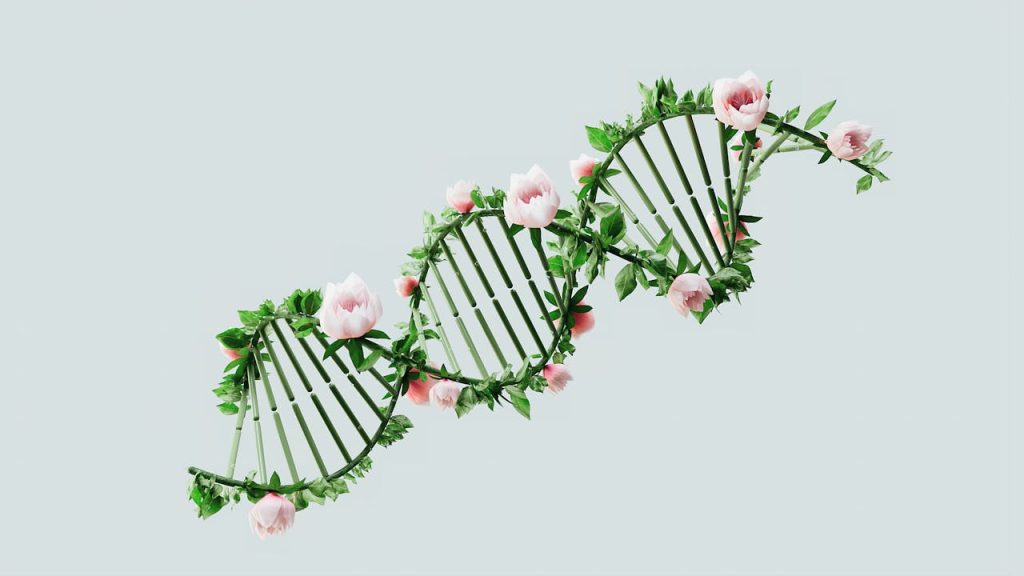You think you choose who you’re attracted to based on personality and looks. But your DNA is actually scanning potential partners for genetic compatibility before you even realize you’re interested. The science of genetic attraction will change how you think about love.
Scientific Context
This article explores research on biological factors in attraction while acknowledging that love and relationships involve complex psychological, social, and personal factors beyond genetics. The research mentioned represents current scientific understanding but continues to evolve. Individual experiences with attraction and relationships vary greatly and can’t be fully explained by genetic factors alone.
Ever feel instant chemistry with someone you just met? Or wonder why you’re consistently attracted to certain types of people? The answer might be in your DNA. Research reveals that attraction isn’t as random as it seems—your genes are constantly scanning potential partners for genetic compatibility.
Here’s how your biology influences who you find attractive, and why some people have that mysterious “spark” while others don’t.
Your DNA Is Screening Partners
Attraction isn’t random—you’re unconsciously drawn to people with specific genetic characteristics that complement your own.
Genetic compatibility affects everything from initial attraction to relationship satisfaction. Studies show you can literally smell genetic differences through body odor and pheromones that influence whether you feel attracted to someone.
Facial attractiveness preferences correlate with genetic diversity markers, suggesting you’re programmed to find genetically healthy partners appealing. This unconscious genetic screening happens within seconds of meeting someone, influencing whether you feel that spark or not.
The Immune System Connection
Your Major Histocompatibility Complex (MHC) genes control immune system function and strongly influence attraction patterns.
You’re typically attracted to people with different MHC genes from your own, creating genetic diversity that would benefit potential offspring. The famous “sweaty t-shirt study” showed women prefer the scent of men with dissimilar MHC genes to their own.
This preference is strongest when women are ovulating, suggesting hormonal cycles influence genetic attraction patterns. MHC diversity in couples correlates with relationship satisfaction, fertility rates, and reduced miscarriage risk.
Why Symmetry Is Universally Attractive
Facial symmetry is attractive across all cultures because it signals genetic quality and developmental stability.
Symmetric faces indicate good genes that successfully guided development despite environmental stresses and genetic mutations. Research shows people with more symmetric faces have stronger immune systems and better overall health.
You can detect tiny asymmetries unconsciously, influencing attraction even when faces look symmetric to your conscious perception. This preference appears early in infancy, suggesting it’s genetically programmed rather than culturally learned.
The Goldilocks Zone of Genetics
You’re simultaneously attracted to genetic similarity (for compatibility) and genetic difference (for healthy offspring) in complex ways.
Studies show preference for faces that are slightly similar to your own but not too similar. The “optimal outbreeding” theory suggests you seek partners who are genetically similar enough for compatibility but different enough for healthy children.
Too much genetic similarity reduces attraction and can cause relationship problems, while too much difference also reduces compatibility. This creates a “Goldilocks zone” of genetic distance that maximizes both attraction and relationship success.
How Hormones Change Your Preferences
Your hormonal cycles significantly influence genetic attraction preferences, especially if you’re a woman.
During ovulation, women show stronger preferences for masculine faces and bodies that signal good genes. Birth control pills can alter these natural attraction patterns by disrupting normal hormonal cycles.
Men’s testosterone levels influence their attraction to feminine features and their own attractiveness to potential partners. Stress hormones can override genetic attraction preferences, explaining why your attraction patterns change during difficult life periods.
Modern Life Complicates Ancient Programs
Your genetic attraction programs evolved for different circumstances than modern dating:
Birth control, cosmetics, and modern hygiene mask natural genetic signals that guide attraction. Online dating emphasizes visual appearance over genetic compatibility markers like scent and pheromones.
Extended adolescence and delayed reproduction separate attraction from immediate reproductive consequences. Urban environments expose you to far more potential partners than your genetic programs evolved to handle.
What This Means for Your Relationships
Understanding genetic attraction can help explain your relationship patterns:
**Instant chemistry often reflects genetic compatibility:** That spark you feel might be your DNA recognizing a good genetic match, while lack of chemistry may indicate genetic mismatch regardless of other compatibility.
**Long-term success correlates with genetic compatibility:** Measures beyond initial attraction affect relationship satisfaction over time.
**Individual variation matters:** Your personal genetic makeup influences what specific traits you find attractive in potential partners.
**Life experiences matter too:** Cultural factors and personal history can modify but not completely override genetic attraction preferences.
The Practical Takeaway
Your attraction patterns aren’t entirely under your conscious control—they’re influenced by genetic programs designed to help you find compatible partners and produce healthy offspring.
This doesn’t mean you should base relationship decisions entirely on initial attraction or that genetic compatibility guarantees relationship success. Many other factors contribute to healthy relationships, including shared values, communication skills, and emotional compatibility.
Understanding genetic influence can help you distinguish between genuine compatibility and superficial attraction, but it shouldn’t override personal choice or conscious partner selection.
Your Genetic Dating Profile
Your DNA is constantly scanning for genetic compatibility in potential partners, influencing attraction in ways you never realized. This happens automatically and unconsciously, shaping who you find appealing before your conscious mind gets involved.
While genetics influence attraction, they don’t determine your relationship destiny. Understanding the science helps you make better choices about love and compatibility by recognizing which feelings might be biologically driven versus personally meaningful.
What About You?
Have you experienced instant chemistry that couldn’t be explained? Do you notice patterns in who you’re attracted to? How might understanding the genetic component of attraction change your approach to dating?
Remember: Genetics provide one lens for understanding attraction, but successful relationships require much more than genetic compatibility. Use this knowledge as additional insight, not as the primary basis for relationship decisions.
